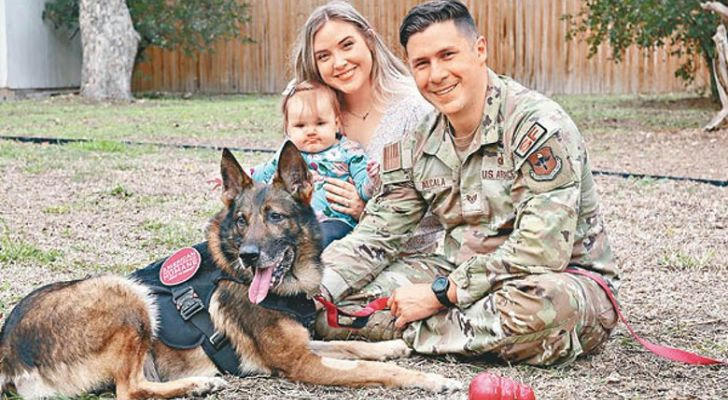Do you know about VA housing assistance for U.S. veterans?
The U.S. Department of Veterans Affairs (VA) offers a variety of programs to support veterans, especially veterans with disabilities. Among these programs, housing grants are designed to help disabled veterans purchase or modify housing to meet their needs and live more independently.

Specially Adapted Housing (SAH)
The SAH grant program is designed to assist veterans with certain service-connected disabilities in acquiring or modifying a home to accommodate their needs. The primary goal of the SAH program is to provide veterans with a living environment that enhances their independence and quality of life.
You may be able to get an SAH grant if you’re using the grant money to buy, build, or change your permanent home (a home you plan to live in for a long time) and you meet both of these requirements.
Both of these must be true:
●You own or will own the home, and
●You have a qualifying service-connected disability
Qualifying service-connected disabilities include:
●The loss, or loss of use, of more than one limb
●The loss, or loss of use, of a lower leg along with the residuals (lasting effects) of an organic (natural) disease or injury
●Blindness in both eyes (with 20/200 visual acuity or less)
●Certain severe burns
●The loss, or loss of use, of one lower extremity (foot or leg) after September 11, 2001, which makes it so you can’t balance or walk without the help of braces, crutches, canes, or a wheelchair
How much funding does an SAH grant offer?
If you qualify for an SAH grant, you can get up to $117,014 for FY 2024. This is the current total maximum amount allowed for SAH grants.
Special Housing Adaptation (SHA)
The SHA grant program is similar to SAH but is intended for veterans with less severe disabilities. The SHA program helps veterans adapt their homes to improve accessibility and functionality.
You may be able to get an SHA grant if you’re using the grant money to buy, build, or change your permanent home (a home you plan to live in for a long time) and you meet both of these requirements.
Both of these must be true:
●You or a family member own or will own the home, and
●You have a qualifying service-connected disability
Qualifying service-connected disabilities include:
●The loss or loss of use of both hands
●Certain severe burns
●Certain respiratory or breathing injuries
How much funding does an SHA grant offer?
If you qualify for an SHA grant, you can get up to $23,444 for FY 2024. This is the current total maximum amount allowed for SHA grants.
Temporary Residential Adaptation (TRA)
You may be able to get a TRA grant if you’re using the grant money to change a family members’ home where you’re living and you meet both of these requirements.
Both of these must be true:
●You’re living temporarily in a family member’s home that needs changes to meet your needs (you don’t have to own the house), and
●You qualify for an SAH or SHA grant
How much funding does a TRA grant offer?
If you qualify for an SAH grant, you can get up to $47,130 through the TRA grant program for FY 2024.
If you qualify for an SHA grant, you can get up to $8,415 through the TRA grant program for FY 2024.

Success Stories
Case Study 1: John’s Journey to Independence
John is a veteran who served in the Army and sustained a spinal cord injury during deployment. Upon returning home, he faced significant difficulties due to the lack of accessibility. John applied for a SAH grant to remodel his existing home.
With the assistance of the VA, John received the maximum SAH grant amount. He used the funds to install a wheelchair ramp, widen doorways, and create a fully accessible bathroom. These modifications allowed John to regain his independence and live more comfortably in his home. He expressed immense gratitude for the support he received, stating, “The SAH grant changed my life. I can now move around my home without assistance, which means the world to me.”
Case Study 2: Sarah’s New Home
Navy veteran Sarah was diagnosed with severe mobility impairment following an accident during her service. After struggling to find the right living situation, she decided to apply for a SHA grant to renovate her home.
Sarah was approved for the SHA grant and used the funds to make essential modifications, including installing grab bars in the bathroom and lowering kitchen countertops for easier access. Additionally, she was able to purchase a home that was closer to her family and support network. Sarah shared her experience, saying, “The SHA grant made it possible for me to create a home that fits my needs. I feel safe and supported, and I can finally enjoy my space.”
Frequently Asked Questions
Q1: How do I apply for SAH or SHA grants?
A1: To apply for SAH or SHA grants, veterans can visit the VA’s official website or contact their local VA office. The application process involves submitting the necessary documentation, including proof of service-connected disability and details about the property.
Q2: What types of modifications are covered by the grants?
A2: The grants can be used for various modifications, including wheelchair ramps, accessible bathrooms, wider doorways, and other adaptations that improve accessibility and functionality.
Q3:How long does the application process take?
A3: The application process duration can vary depending on the completeness of the submitted documentation and the current workload of the VA. Generally, it can take several weeks to a few months to process the application. It is advisable to ensure that all required documents are submitted to avoid delays.
Q4: Are there any additional resources available for veterans seeking housing assistance?
A4: Yes, in addition to SAH and SHA grants, veterans can explore other VA programs, such as the VA Home Loan program, which offers favorable loan terms for purchasing homes. Additionally, local veteran service organizations may provide resources and support for housing assistance.
Conclusion
Housing grants offered by the Department of Veterans Affairs (VA) are a valuable resource for disabled veterans seeking to create a living environment that meets their unique needs. If you are a disabled veteran considering applying for these grants, it is essential to understand the eligibility requirements and the application process. With the right support and resources, you can take significant steps toward achieving a comfortable and accessible living situation. The VA is committed to helping veterans navigate these programs, ensuring that they receive the assistance they deserve.
